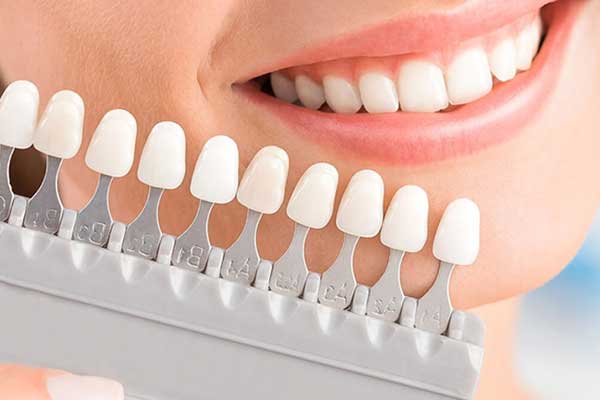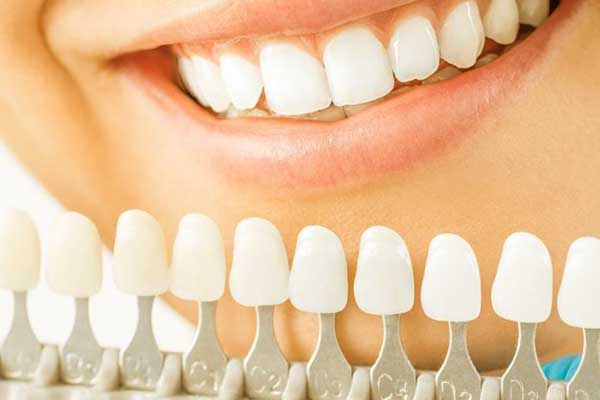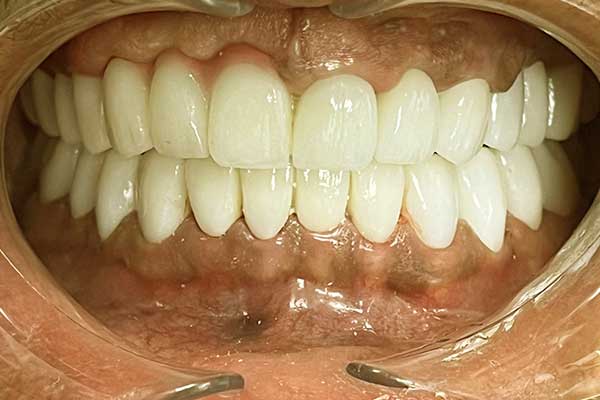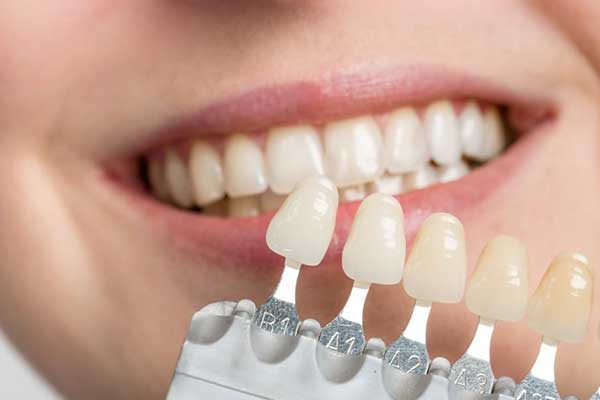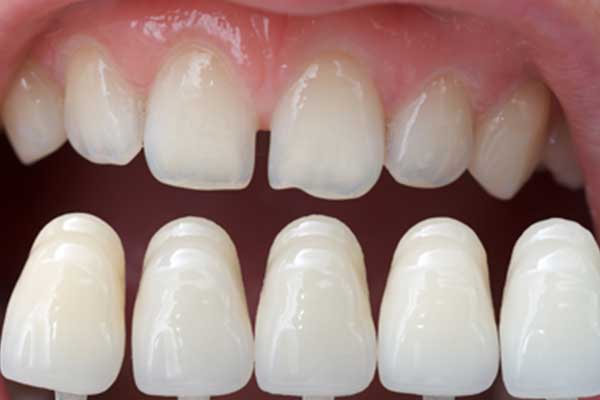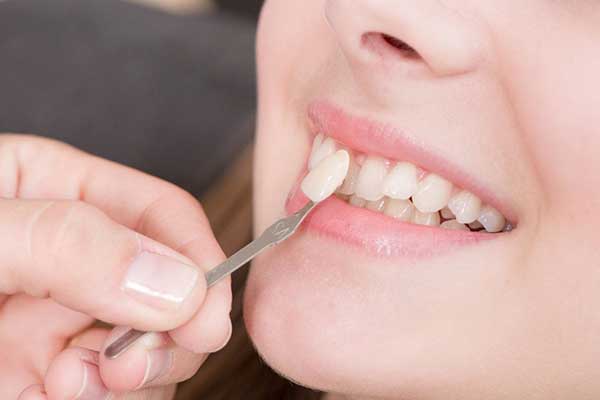Veneers on Gap Teeth: Enhancing Your Smile with Confidence
Introduction veneers on gap teeth
Having a perfect smile is a desire shared by many. A beautiful smile not only boosts confidence but also enhances one’s overall appearance. However, gaps between teeth can sometimes make individuals feel self-conscious about their smile. Fortunately, modern dentistry offers a solution in the form of veneers.
In this article, we will explore the benefits of veneers on gap teeth and how they can transform your smile. Let’s dive in!
Table of Contents
- Understanding Gap Teeth
- What Are Veneers?
- How Do Veneers Work?
- The Benefits of Veneers on Gap Teeth
- The Veneer Placement Process
- Aftercare Tips for Veneers
- Addressing Common Concerns
- Conclusion
- FAQs
Understanding Gap Teeth
Gap teeth, scientifically known as diastema, refer to spaces between teeth that are wider than usual. These gaps can occur between any teeth but are commonly found between the front teeth. Gap teeth can be caused by various factors, such as genetics, irregular jawbone growth, missing teeth, or habits like thumb sucking. While some individuals embrace their gap teeth as a unique feature, others may seek to minimize or close these gaps to achieve a more uniform smile.
What Are Veneers?
Veneers are thin, custom-made shells typically made of porcelain or composite resin. They are designed to cover the front surface of teeth, improving their appearance and providing a natural-looking solution for dental imperfections. Veneers can be used to address a range of dental issues, including gap teeth, discoloration, misalignment, and chipped or worn-down teeth.
How Do Veneers Work?
Veneers are bonded to the front surface of teeth, effectively masking any gaps or imperfections. The process typically involves a consultation with a qualified dentist or cosmetic dentist who will assess your dental health and discuss your desired outcome.
During the procedure, a small amount of enamel is gently removed from the teeth receiving veneers to create space for the veneer placement. Impressions of your teeth are taken to ensure the veneers are tailored precisely to fit your smile. Once the veneers are ready, they are bonded to the teeth using a dental adhesive, resulting in a seamless and natural-looking smile.
The Benefits of Veneers on Gap Teeth
1. Enhanced Aesthetics
Veneers provide a remarkable improvement in the appearance of gap teeth. By effectively closing the spaces between teeth, veneers create a more uniform and symmetrical smile. This aesthetic enhancement can significantly boost an individual’s self-confidence and improve their overall self-image.
2. Natural Look and Feel
One of the most significant advantages of veneers is their ability to mimic the appearance of natural teeth. Porcelain veneers, in particular, possess a translucent quality that reflects light similarly to natural tooth enamel. This results in a seamless blend with the surrounding teeth, making it virtually impossible to distinguish between the veneers and the natural teeth.
3. Minimally Invasive Procedure
Compared to alternative treatments like orthodontic braces or dental implants, veneers offer a less invasive solution for gap teeth. The process typically requires minimal alteration of the natural tooth structure, preserving the integrity of the teeth while achieving the desired aesthetic improvements.
4. Long-Lasting Results
When properly cared for, veneers can provide long-lasting results. With good oral hygiene practices and regular dental check-ups, veneers can maintain their appearance for 10 to 15 years or even longer. This longevity makes them a worthwhile investment for individuals seeking a lasting solution to their gap teeth.
The Veneer Placement Process
The placement of veneers on gap teeth generally involves several steps:
- Consultation and assessment: Your dentist will evaluate your oral health, discuss your goals, and determine if veneers are the right option for you.
- Tooth preparation: A small amount of enamel is removed from the front surface of the teeth receiving veneers to create room for the veneer.
- Impression: Impressions or digital scans of your teeth are taken to create custom veneers that fit your smile perfectly.
- Temporary veneers: Temporary veneers may be placed while your permanent veneers are being fabricated.
- Veneer bonding: Once the permanent veneers are ready, your dentist will ensure the fit and color match before bonding them to your teeth using a dental adhesive.
- Final adjustments: Any necessary adjustments to the shape and fit of the veneers are made, ensuring optimal comfort and aesthetics.
- Follow-up appointment: A follow-up appointment is scheduled to evaluate the success of the veneer placement and address any concerns or questions.
Aftercare Tips for Veneers
To maintain the longevity and appearance of your veneers, consider the following aftercare tips:
- Maintain good oral hygiene: Brush your teeth at least twice a day with a soft-bristle toothbrush and use a non-abrasive fluoride toothpaste. Floss daily and rinse with an antibacterial mouthwash.
- Avoid excessive force: While veneers are durable, they can still be damaged by excessive force. Avoid biting down on hard objects or using your teeth as tools.
- Minimize staining agents: Limit the consumption of staining agents like coffee, tea, and red wine. If you do indulge, rinse your mouth with water afterward.
- Regular dental check-ups: Visit your dentist for regular check-ups and professional cleanings to ensure the health and longevity of your veneers.
Addressing Common Concerns
1. Can veneers fix all types of gap teeth?
Veneers are a versatile solution for many dental concerns, including gap teeth. However, the suitability of veneers depends on the individual’s specific case. Consult with a qualified dentist or cosmetic dentist to determine if veneers are the right option for you.
2. Are veneers reversible?
The process of placing veneers typically involves removing a small amount of enamel from the teeth. As a result, the procedure is considered irreversible. It’s crucial to carefully consider the decision and consult with your dentist before proceeding with veneers.
3. Do veneers require special care?
Veneers do not require any specialized care beyond maintaining good oral hygiene practices. Regular brushing, flossing, and dental check-ups are essential for the long-term success of your veneers.
4. How much do veneers cost?
The cost of veneers can vary depending on various factors, such as the number of teeth being treated, the type of veneers chosen, and the location of the dental practice. It is best to consult with your dentist to receive an accurate cost estimate based on your specific needs.
5. Are veneers noticeable?
When properly placed by a skilled dentist, veneers blend seamlessly with the natural teeth, making them virtually indistinguishable. The color, shape, and size of the veneers are customized to match your natural teeth, ensuring a natural-looking smile.
Conclusion veneers on gap teeth
Veneers offer a transformative solution for individuals with gap teeth, allowing them to achieve a confident and radiant smile.
With their ability to close gaps, enhance aesthetics, and provide long-lasting results, veneers have become a popular choice in modern cosmetic dentistry. If you’re considering veneers for your gap teeth, consult with a qualified dentist to determine if this treatment option is suitable for you.
FAQs veneers on gap teeth
1. How long does the veneer placement procedure take?
The veneer placement procedure typically takes two to three visits to the dentist. The duration can vary depending on the complexity of your case and the number of veneers being placed.
2. Will my veneers stain over time?
Veneers are stain-resistant; however, it’s still important to minimize exposure to staining agents to maintain their appearance. Regular brushing and dental cleanings can help prevent staining.
3. Can veneers fix other dental imperfections besides gap teeth?
Yes, veneers can address various cosmetic dental concerns, including discoloration, misalignment, and chipped or worn-down teeth.
4. Can I remove my veneers if I’m not satisfied with the results?
As the veneer placement procedure involves removing a small amount of enamel, it is considered irreversible. It’s crucial to discuss your expectations and concerns with your dentist before proceeding with veneers.
5. How often should I replace my veneers?
With proper care, veneers can last for many years. However, they may need replacement eventually due to wear and tear. Regular dental check-ups will allow your dentist to assess the condition of your veneers and recommend replacement if necessary.

